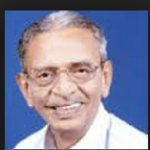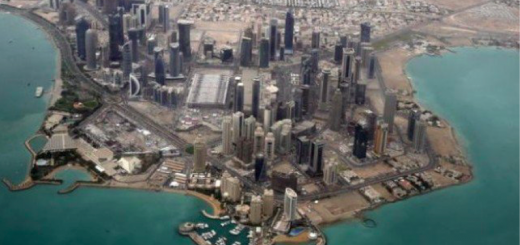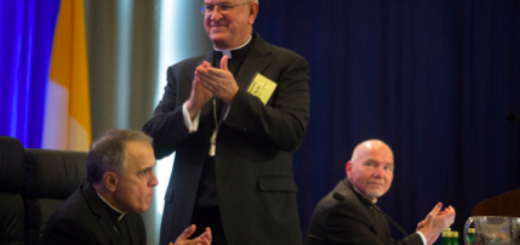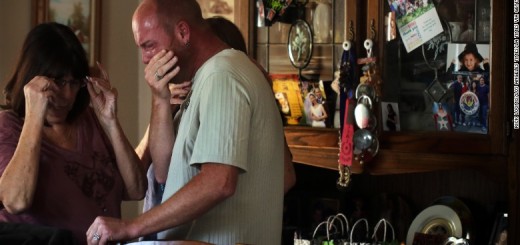India must reaffirm its secular, plural credentials

Paris aftermath
Vir Sanghvi, in Hindustan Times, Nov 24, 2015
(Note: Vir Sanghvi is a very penetrating political analysts. He highlights some of the contradictions and assumptions in the on going discussion in the aftermath of Paris massacre. Unlike in the shootings at Charlie  Hebdo, some months ago in Paris and elsewhere the perpetrators of the dastardly deed in Paris were not outsiders flown in from ISIS centers in middle east, but all or most were French or Belgian nationals. It was a question of enemy within, proving the Gospel truth : “Your enemies are of your own house hold”. It is like a British citizen becoming anti-British as in the case of notorious Jihadi John whom we saw slitting the throat of his victims on TV. So the central question is why British and French Muslims, who had received the full benefits of the welfare state and a liberal education in these most developed and civilized countries, want to become religious terrorists? Similar things are happening all over the world, even in India and Kerala – youngsters going to IS centers and coming back to become suicide bombs at home. So violence today is becoming a deadly wires sweeping the whole world. It has to be fought and eliminated in the minds and heats of misguided people not on battle fields with guns and bombs. Once we talked, still we do, of clash of civilizations which ultimately meant conflict of two misconceived ideologies – Jihadism and crusades. Crusaders realized their folly and have fallen silent while most of the Jihadi group still have to realize that Islam is a religion of peace and Jihad or violence it speaks of is against oneself, to conquer self not others. Now what is the logic in going to war with military might like bombs and war planes to destroy an ideology or belief system? That is why we already said in these notes, what is urgently needed is a war of words, dialogue and reasoning with these radical elements to indoctrinate them in the right principles of human behavior in a conducive atmosphere like the UN. Who does not understand that it is better to shout at each other across a table than to shoot at each other. Readers can do an immense service if they take time to reflect on highlighted portions (underlined or colored) and react critically. james kottoor, editor)
Hebdo, some months ago in Paris and elsewhere the perpetrators of the dastardly deed in Paris were not outsiders flown in from ISIS centers in middle east, but all or most were French or Belgian nationals. It was a question of enemy within, proving the Gospel truth : “Your enemies are of your own house hold”. It is like a British citizen becoming anti-British as in the case of notorious Jihadi John whom we saw slitting the throat of his victims on TV. So the central question is why British and French Muslims, who had received the full benefits of the welfare state and a liberal education in these most developed and civilized countries, want to become religious terrorists? Similar things are happening all over the world, even in India and Kerala – youngsters going to IS centers and coming back to become suicide bombs at home. So violence today is becoming a deadly wires sweeping the whole world. It has to be fought and eliminated in the minds and heats of misguided people not on battle fields with guns and bombs. Once we talked, still we do, of clash of civilizations which ultimately meant conflict of two misconceived ideologies – Jihadism and crusades. Crusaders realized their folly and have fallen silent while most of the Jihadi group still have to realize that Islam is a religion of peace and Jihad or violence it speaks of is against oneself, to conquer self not others. Now what is the logic in going to war with military might like bombs and war planes to destroy an ideology or belief system? That is why we already said in these notes, what is urgently needed is a war of words, dialogue and reasoning with these radical elements to indoctrinate them in the right principles of human behavior in a conducive atmosphere like the UN. Who does not understand that it is better to shout at each other across a table than to shoot at each other. Readers can do an immense service if they take time to reflect on highlighted portions (underlined or colored) and react critically. james kottoor, editor)
We know now that at least part of the network behind the carnage in Paris comprised people who were born and brought up in France. These attacks — like the shootings at Charlie Hebdo, some months ago — were not carried out solely by dangerous mercenaries and jihadists imported into France from West Asia. They were carried out by French people.
In that sense, the outbreak of terror in France is not unlike the London tube attacks of 2005. Then too, the perpetrators were British. They were young people who had grown up in Britain. Speaking at the HT Leadership Summit some years ago, Tony Blair, who was prime minister when the London attacks occurred, said that one element of the bombings continued to puzzle him: Why?
Why did British Muslims, who had received the full benefits of the welfare state and a liberal education from the British school system, want to become religious terrorists? Why were they prepared to give up their lives in the process? And what was their grievance given that Muslims in Britain (and certainly the bombers themselves) were not treated particularly badly and that the community seemed to be integrating into the British mainstream?
Blair had no answers then. And now, as more and more British Muslims (including the notorious Jihadi John, now hopefully deceased) go abroad to join murderous jihadi groups, the questions seem even more troubling, and the answers are as elusive.I imagine that they are asking themselves the same questions in Paris in the aftermath of the attacks. What transforms Western-educated European citizens into suicide bombers? Why do they turn against the system in which they have been raised?
The narrative of terrorism has, till about a decade or so ago, focussed on the doctrine of no alternative. The Palestinians who kicked it all off in the sixties, we were told, had been left with no choice because of the way the Israeli State — with the help of the West — had oppressed them and driven them to acts of desperate violence.It is a narrative that still surfaces every now and then. When Pakistan sent jihadis to Mumbai, they were told to pretend to be Indians from the Deccan Mujahideen protesting against the Indian State. Asked by a TV channel whether he realised he was going to die, one of the terrorists at Nariman House mournfully responded “we die every day”.
This narrative was also routinely parroted by Pakistani politicians. Asked at another HT Leadership Summit about suicide bombers, Imran Khan recited: “How desperate must a man be if he is prepared to sacrifice his own life?”The problem is that this bogus glamorisation of murderers does not explain why there are so many more terrorists in Pakistan than there are in India, or why so many of them target the Pakistani State and its politicians (including Imran). They are certainly not being driven to desperation and violence by some evil Jewish or Hindu State when they massacre their own people.
The truth is that over the last decade or so, there is a baffling radicalisation of Muslim youth across the world. Such modern means of communication, as the Internet, have assisted this process as have more traditional methods, such as mad mullahs and a few madrasas which spread an ideology of hate.Nobody seems able to accurately explain or analyse this wave of violent radicalisation as it spreads across the Muslim world. Today’s terrorists are not necessarily oppressed people driven to violence out of desperation. Often they are young people with a mystifying attraction to violent Islamism and an abiding belief in the medieval notion that if they die while killing other people, they will go to heaven.
Fifteen years ago India used to boast that not one Indian Muslim had joined al-Qaeda. This was worth boasting about. India has the world’s second-largest Muslim population. Many of our Muslims are poor, badly-educated and face discrimination every day. That none of them had joined al-Qaeda was a tribute to the inclusive nature of the Indian State and to the half-triumphs of Indian secularism.
But now, we must ask ourselves the obvious question. If there is a wave of violent radicalisation sweeping through the Islamic world, how long before it has some impact on Indian Muslims? If the Islamic State (IS) and al-Qaeda are looking for new targets and new recruits, then isn’t it natural for them to focus on India?The answers seem pretty obvious. And already there are reports of young Indian Muslims going off to join the IS or being attracted to jihadi ideologies on the Internet. So far, the numbers are not large enough to justify any kind of panic. But equally we can’t now make the boasts about ‘not one jihadi’ that we did 15 years ago.
In these circumstances, we need to follow two approaches. The first is to strengthen our intelligence agencies (which failed so spectacularly over the Mumbai attacks). The reason why the French are more vulnerable than, say, the British is partly because their security services take a laidback attitude towards potential jihadis.But it is the second approach that is more crucial. One reason why India has beaten the odds and held off the global jihadis is because of our secularism and pluralism, creaky and imperfect as they may be. Abandon those principles, give Muslims the feeling that they are being targeted, and they will feel they have no stake in India.
That is something India cannot afford. If even a tiny proportion of India’s vast population signs up to the IS agenda, then that is the end of stability or of the dream of a prosperous modern India.So, finally, even those who prefer a more Hindutva-driven India must embrace our country’s pluralism. It’s no longer about Nehru, Gandhi and the principles this country was founded on. It’s about self-interest. And survival.
















